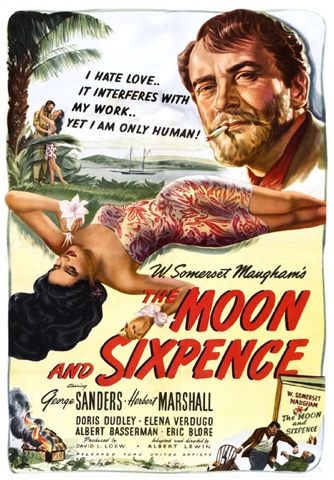My great thanks to Max u for the Amazon Gift Card that enabled my reading of this book.
Having recently completed Rosamond Lehmann A Life by Selina Hastings, I was eagerly looking forward to reading her biography of the author of On Human Bondage, The Secret Lives of Somerset Maugham. Maugham (1874 to 1965) was the first superstar author, making himself very wealthy from his writings. More movies have been made from his novels, many plays and short stories than from works by any other writer. Three movies have been made from his most famous short story, "Rain". Maugham described himself as not a writer of tne first rank but very high in the second rank. This is the judgement of literary history.
I don't wish to give a micro recap of Maugham's fascinating life in this post. I will say say at once that this is a fabulous book, providing much more than in depth look at the life of Maugham, including a very detailed account of his sex life, but a literary history of much of the period. Maugham would have been, if we can speculated, happier had he lived in an era when homosexual acts were not a crime. The greatest misery of his life after a difficult growing he had up until he entered into dementia toward the end a life most would envy, was a marriage he was bullied into and which I think he acquised to inorder that he might cover up his homosexual activities. Hastings tells us a great deal about the love life of Maugham. He liked younger than he slender handsome men and had several long term relationships. He also liked having sex with rent boys. While at his villa in the French Rivera, he cruised the bars for sailors. Maugham was very generous to his lovers, he was predatory at times but he was also exploited.
I loved this book. I was so happy for Maugham, who graduated from medical school, as his literary career began to have one triumph after another. His first significant wealth came from from London and Broadway plays. He also made a lot from book sales and movies. Just from one short story, "Rain", he made, from sales and the three movies based on it, over three million dollars. Maugham traveled the world, especially in South East and South India, where he got the inspiration for many of his stories. Maugham traveled in style, normally with his long term companion Gerald Haxton.
For forty years Maugham's primary residence was in a property , The Villa Mauresque, he owned on the French Rivera. He entertained many writers, including Rosamond Lehmann, and lots of celebrities. He had a staff of twelve. Dinners were always formal. Maugham loved elegant meals, fine wines, collected art, (his collection of paintings would be worth billions now if intact), he was very well read. He always traveled with a suitcase full of books so he could have variety in reading while traveling. He mostly traveled transoceanic by boat.
Villa Mauresque
Hastings just has put so much great stuff in her biography, everything from details on homosexual orgies in Hollywood, the ways of literary agents and publishers, an account of how Maugham's experience working for a short time as a doctor in the poorest part of London impacted his sensibility, and so much more. Maugham was very lucky in that he had a totally honest very astute financial genius managing his money for him. Maugham spent much of World War Two in the United States, sometimes in New York City where at one time four of his plays were on Broadway simultaneously, some in Hollywood working on scripts. We learn a lot about the business side of being a playwright, dealing with temperamental stars and wondering how long a play would run.
Just a few of Maugham's works
Toward the end of his life Maugham became dependent on one of his nephews for care. It was so sad to read of his falling out with his daughter and his terrible decline into dementia.
The Secret Lives of Somerset Maugham is a great literary biography. Even if you have never read any Maugham, you should read at least On Human Bondage and "Rain", I think anyone with an interest In Twentieth century literary culture will enjoy this book.
I will, I hope, read her biography of Nancy Mitford one of these days.
Mel u


















